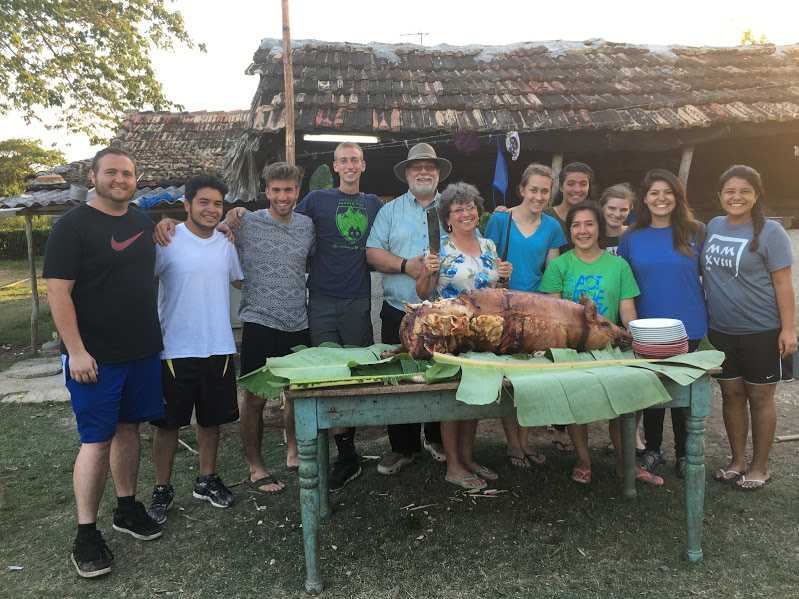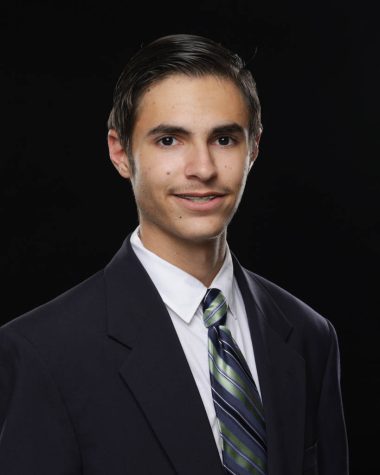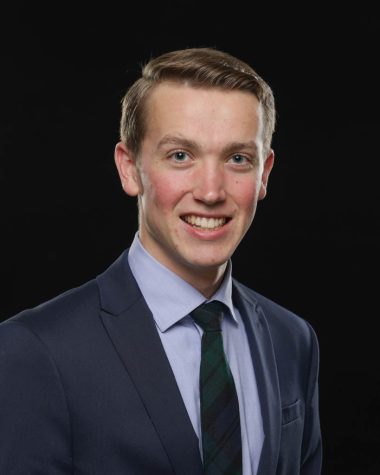Over 2,000 years ago, when our Lord first appeared to His disciples after His resurrection, He left His followers with these words: “Peace be unto you: as my Father hath sent me, even so send I you” (John 20:21). This has been the mission of Mark Vowels, chair of the Division of Ministries, over his last 20 years at Bob Jones University. According to Vowels, the number of students that have gone on an international mission trip has surpassed a tenfold increase since he began teaching at BJU.
Since the day he left with his first team to serve in Costa Rica, Vowels has served in numerous countries all over the globe. He has a special passion for Cuba, where his wife was born and where he now focuses his efforts. The Lord has greatly blessed his ministry, which is now amplified through the Center for Global Opportunities — and he has an amazing testimony to share.
Vowels was raised with strong Christian roots, and he attended BJU with the class of 1979, he felt that God had plans for him in the ministry. In response, he set out to pursue what he describes as the “rock star” career, evangelism. This desire lasted only until the end of his freshman year, when he was convicted of its self-centeredness. He began to push in the opposite direction, aiming for a low-key church-planting life somewhere stateside where he could decrease as the Gospel increased — an example famously put forth by John the Baptist in John 3:30.
During Vowels’ junior year, God began to take these godly aspirations and shape them toward His purposes. Vowels fell very sick with viral meningitis and was placed in a dark room of the on-campus hospital to sleep and recover. “By the second week, I was starting to be a little bit better,” Vowels recalls. “And so then they said, ‘You have to listen to chapel.’ And I just thought that was so cruel. Like, ‘I’m here suffering, and you’re going to make me listen to chapel?’” In the dark quiet of the room, resting on the sickbed, Vowels listened as the preacher spoke on missions. With little else to do but think, Vowels turned the message over and over in his mind.
For the first time, Vowels began to wrestle with the question of whether he was called to missions. It seemed to him that the missionaries God used were all extraordinary people and that he was not of the same spiritual caliber. “And then I realized that God really wasn’t looking for extraordinary,” Vowels recalled. “He was looking for somebody who’s committed and devoted.” With that mindset, Vowels finished his degree and moved with his wife to Florida.
During his time in Florida, he started a Spanish-speaking church “sort of in a roundabout way” where he served the local Caribbean community for over a decade. Eventually, he and his wife made plans to travel to Cuba as the first post-revolution resident missionaries. But after they crossed all the impossible red tape, just over a week before their departure date, new tensions arose between the U.S. and Cuba. On February 24, 1996, unarmed American planes operated by Hermanos al Rescate (Brothers to The Rescue), bearing American flags, were shot down by the Cuban Air Force — an act that made travel between the countries impossible.
During the following days of inner turmoil, the Lord once more visited Vowels through a season of difficult health. This time an acute blood clotting disorder left him in the hospital for about half of the next year. After he recovered, Vowels left Florida for Greenville, South Carolina, where he served at a missions agency for a few years. In August of 2000, with much prayer, Vowels accepted a position at BJU directing all missions-related activities, a role in which he has worked with God’s blessing ever since.
While Vowels admits that he is simply an ordinary man, God has chosen to use his devotion in extraordinary ways. “One of the huge benefits of traveling and doing missions and visiting different countries and being with different missionaries is you begin to realize that God is much bigger than just us and our Christianity and our way of doing things,” Vowels said. “And you start to experience the way people around the world are passionately trying to follow Christ and serve the Lord, and it doesn’t necessarily look or feel the same way as it does here.”
He said that some of his best memories include watching students suddenly discover that they, too, could be used by God. He told the story of Rob, a student who traveled with his team to the Muslim island of Mindanao, Philippines. Vowels had told all the students that regardless of their major, they needed to prepare a sermon just in case they were called on to preach the gospel. One day, with no prior indication, the pastor they were working with sent several men on motorcycles to preach in different villages.
As he rode away, Rob had “this look of complete fear on his face,” but after staying the whole day, he returned overflowing with joy. Something inside of Rob had radically changed, and after that day, he always volunteered eagerly for any similar assignments. “I think that was the day he realized, you know, God could use him,” Vowels said. “Wherever he was, God could use him. And I’ve seen that happen over and over again.”
Vowels also treasures memories of the strong desire for Scripture he encountered while traveling abroad. During one of his visits to a nation with a hostile communist government, he preached to a hidden assembly of a few hundred people by means of a translator while the audience paid him relaxed and careful attention. After preaching for an hour and a half through the first chapter of Acts, he finished his sermon — or so he thought.
“Is that all?” an audience member asked. “Are you really going to stop now?” The rest of the audience stared at him with earnest looks, silently pleading for him to continue.
So, Vowels continued preaching through Acts 2 for another hour and a half, but that was still not enough. He ended up preaching through the next three chapters as well, finishing at 2 a.m. the next morning.
In the same country, Vowels preached to a hidden congregation of church leaders in an extremely secretive environment. One night, he woke up hearing many voices in the room nearby where the church leaders usually slept. Terrified that the police might have arrived, he woke the translator who was asleep in the same room, and the man left to find out what was the trouble. After 45 minutes of anxious waiting, Vowels was told that “they got really convicted about what you spoke, what you taught them today, and they decided they needed to pray.” They held an online prayer meeting till 4 a.m., and the next session opened at 8 a.m. that same day. “Those things really change your perspective,” Vowels said. “You come back and you realize that your faith is not so great, you know your Christianity is not so strong.”
Vowels encourages students to take the gifts God has given them and pursue God’s will for their lives, knowing that missions is not always a dangerous overseas endeavor but rather is often an ordinary, local part of life.
This summer, BJU teams will travel to Iraq, Britain and Uganda, as well as Texas and Western U.S. As Vowels continues to organize mission teams with BJU students, he exhorts us all toward a greater awareness of the God who not only gave the Great Commission but brings forth fruit.
“I’ve learned a lot about mission practice and theory and philosophy, of course, but primarily I’ve learned more about God,” Vowels said. He said his travels always deeply remind of two things: “I come away realizing how very small, and how very, very selfish I am, and how I really enjoy things [to] be just the way I like, just the time I like.”
He also said experiencing the different cultures on the mission field and different ways of doing things stretches team members in positive ways. “It pulls us out of our comfort zone, and then you start to see how selfish you are because it makes you uncomfortable to be in another environment,” he said. “But the other thing is, you come away seeing how amazingly big God is and how he is at work in ways that you never even guessed, you would have never even imagined, he’s at work in places around the world.”
























































